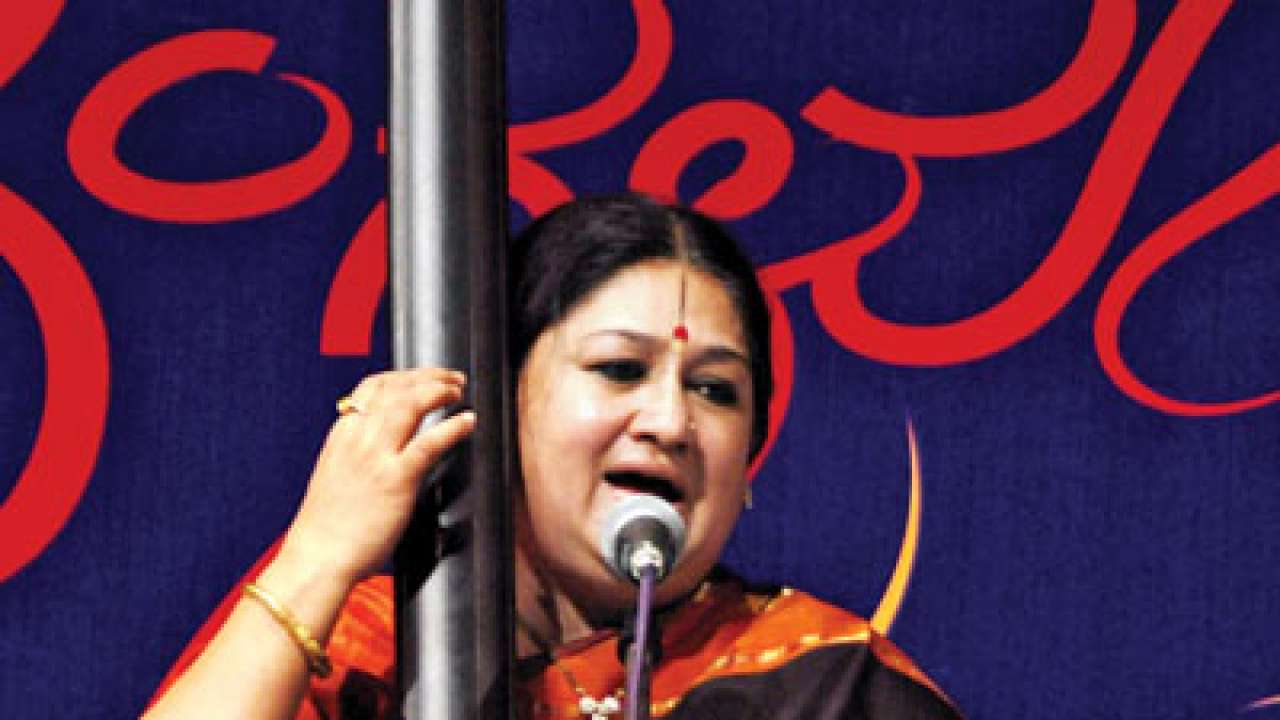
The Sunnyvale incident in the US where an attempt was made to bully and threaten you for your political views had led to sharp reactions here.
The incident occurred on June 1, 2014, nearly a month ago, and I have since moved on. I don't think either the incident or the person who threatened me is deserving of being given any more importance than that. My fellow artistes and I handled the situation appropriately and the fact that we performed at the concert which followed the incident is proof of our resilience and sincerity towards our work.
I should like to mention that the first person to publicly condemn the incident was none other than a (Narendra) Modi supporter in the Bay area, proving once again that generalisations are usually odious and inaccurate.
What do you make of artistes being targeted for their personal political preferences?
This is most unfortunate. Particularly, when we take great pride in telling people that we are a pluralistic democracy where difference of opinion is respected. Nobody should be targeted for their views. I remember how disturbing it was when a senior artiste of Lata Mangeshkar's stature was targeted for making her support known for Modi as PM public in November last year. Everybody need not agree with her or some may have diametrically opposite views but that does not mean she should not be entitled to her view as an individual. I think it was distasteful that some supporters of the Congress party were reported to have suggested that she should return her Bharat Ratna as it was conferred on her during the Congress regime!
While artistes support 'safe' public causes like fundraisers for hospitals or schools, not many are willing to stick their neck out when it comes to socio-political issues.
Artistes are usually very generous in supporting charitable causes, especially fundraisers for social issues. But it is possible that they hesitate or are reticent in some cases. It's just that some of them may have burned their fingers with bad experiences not only from hostile critics, but also trolls on social media who are opposed to them or the cause they are supporting. Sometimes, strangely, the very organisations they are aligning with can be the problem. It can range from using photographs without permission to using the artiste's position and name to further hidden agendas. It can get the artiste embroiled in controversies through which these organisations gather publicity and mileage. Abuse of such trust can make most artistes think twice before taking up public causes.
You have always used music as a platform to speak of social issues. How did this happen?
I would credit my upbringing and mentoring by my parents for that. There was a lot of reading and discussion around the poetry of Faiz Ahmed Faiz, Majrooh Sultanpuri and Sahir Ludhianvi among the other greats and this has clearly influenced me in my musical journey. The literary content of what is being sung has always been of great interest to me. Furthermore, an artiste cannot remain unaffected by what one witnesses in society or reads about in the media. The deeply disturbing churning one feels within at times gets reflected in the choice of compositions for a performance.
Not many would want to bring "unpleasant" themes to a concert yet you chose to soon after the Nirbhaya rape case in Delhi.
The Nirbhaya rape case had left me quite disturbed like many in the country. My husband Aneesh and I had read Zehra Nigah's powerful nazm Bhejo Nabi ji Rehmatein and were moved by it. When Aneesh set it to music, I requested Zehra Aapa for permission to perform it and she very kindly granted permission. It is a brutal poem about rape, yet it employs everyday images of tranquil domesticity — a woman teaching her pet parrot to invoke the Prophet's blessings, the roti on the tawa, the baby in the cradle. Incidents of violence and brutality leave a mark on one's mind and the outrage inevitably finds an outlet in creative expression. But this outrage clearly isn't enough as is obvious from similar unfortunate and distressing incidents that have happened since.
Your versatility straddles Hindustani classical, Bhakti poetry, Haveli sangeet, and Sufi music on the one hand and looks at the contemporary and current on the other. Do you find a contradiction in exploring such varied genres?
Why should it? I don't see these as completely removed from each other. There is a definite connect and many overlaps. Moreover, as a proud citizen of a country as diverse as ours, I feel fortunate to be able to do this. And yet there is so much more to explore and learn from.
The Sound and the Fury
Last month, Shubha Mudgal said that an office-bearer of the California's Sunnyvale Temple, where she was to perform, accosted her just before the concert and accused her of having written an "anti-Modi, anti-Hindu and anti-national letter to Manmohan Singh". He allegedly made physically intimidating gestures and shouted at her that he would not tolerate such activity, after which Mudgal, Bombay Jayshri and the other artists threatened to walk out of the concert. But they relented when they realised that the concert was sold out, and the organisers assured them of better security measures.